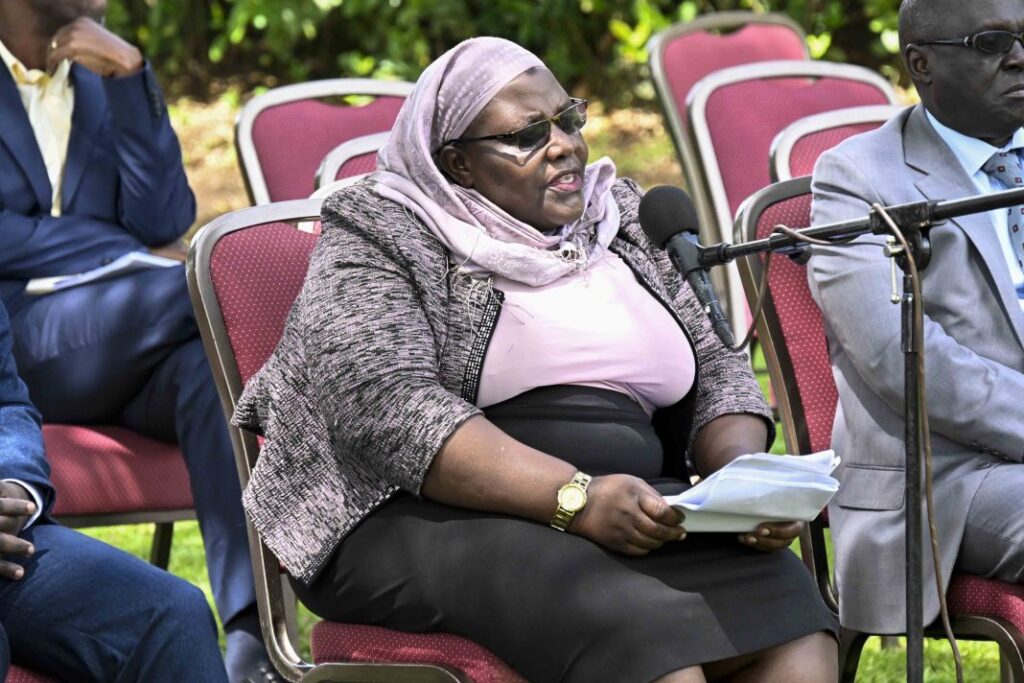Corruption in Uganda has reached alarming levels because legislators have not adequately done well on their oversight role, the chairperson of the Equal Opportunities Commission (EOC), Safia Jjuuko Nalule, has observed.
According to Nalule, the country should not be grappling with corruption when the Constitution empowers MPs to play an oversight role over government activities and programmes.
She noted that the Government loses a lot of funds to illicit acts of corruption, adding that the loss can be avoided by MPs monitoring and following up on everything that takes place in the country.
The latest report by the Inspectorate of Government showed that Uganda loses about sh9.7 trillion annually in corruption, mainly through non and under-declaration of taxes, employees getting paid without working, inflated payrolls and botched procurement processes, among others.
“In past years, we used to lose money to gender and disability exclusion, but when President Yoweri Museveni worked to dose that gap, we are now losing money to corruption. I believe we can defeat this vice and ensure economic growth,” Nalule said.
She made the remarks yesterday while presiding over a high-level dialogue to unpack gender equity issues in national budget at the EOC head office in Kampala.
Over the past weeks, the media has been awash with stories of corruption, with youth taking to the streets to demonstrate against alleged corrupt government officials.
Earlier this month, the President said corruption could be easily defeated if the Judiciary did not grant bail to the corrupt.
He added: “We should easily defeat corruption. The only support we need from the Judiciary is no bail for those accused of murder, treason, terrorism, rape, defilement, corruption (embezzlement) and village thefts if the prosecution is ready for trial,” Museveni said, while addressing the Cabinet retreat at the National Leadership Institute in Kyankwanzi. To Nalule, however, MPs should do their work if corruption is to be decisively fought.
She asked leaders to be good stewards and honest while serving the country, adding that the country will only make notable progress towards development if corrupt tendencies are minimised.
“When entrusted with public offices, you automatically become a parent and a servant who should not scatter public resources. Corruption is one factor that shows that you cannot be trusted with anything,” Nalule said.
Tororo district woman MP Sarah Opendi concurred with her, noting that a section of MPs do not care about what takes place in government.
She, however, explained that other factors, such as, the mindset of some leaders who are after wealth accumulation, contributes to corruption.
“When you are paid and you do not show up to do work, it means that you are paid for no work done. This is also corruption because you are being dishonest,” Opendi observed.
She argued that ministries and government agencies need to be closely supervised, especially on time frames of performance and accomplishing tasks to ensure that the intended work is fully executed.
“If you go to these agencies and ministries, some important areas, such as procurement and human resource are not fully supervised and this is where we end up getting corruption complaints,” Opendi said.
For James Kakooza, the former state minister for primary healthcare, intensifying awareness on national budgeting processes is necessary to ensure the public participates and follows up on budgetary procedures, which will limit chances of corruption.
He said the budget is always hard to be understood by many people, including MPs. This gives the corrupt a lee way to steal public funds. Dr Fred Muhumuza, a lecturer at Makerere university, called on leaders to ensure accountability, saying this will make the country corruption free.

